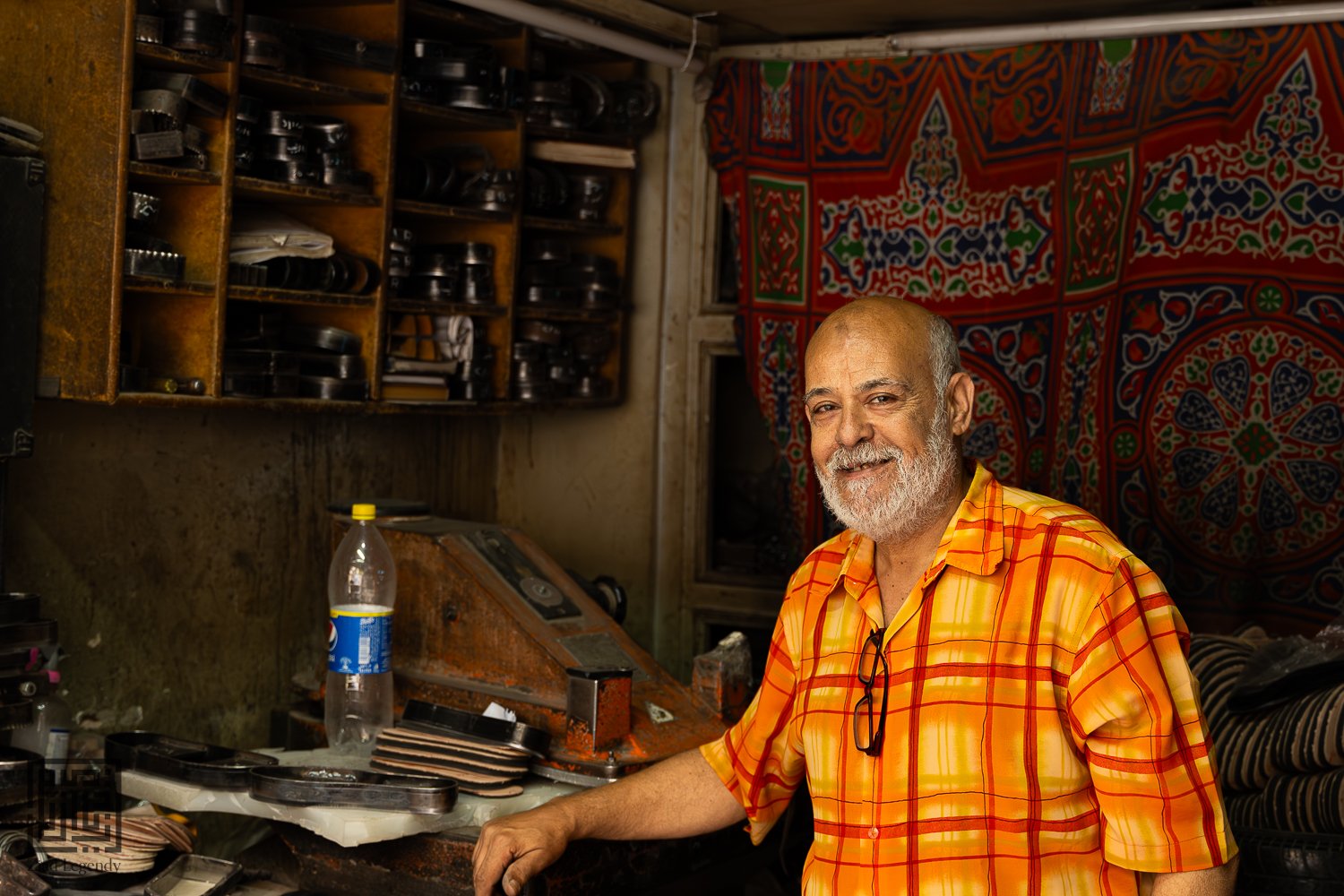The craftsman of Cairo
The craftsman’s workshop, Cairo, Egypt, June 2023
“The difference between craftsmanship today and back in the day is the absence of true skill. Craftsmen today overly rely on machines, which is different from how I began. The first step before doing any work was always to sharpen the knifes with granite stones by hand. Then it would take me 3 hours to make a custom shoe sole for a customer. First I had to cut it out of leather, then glue and hammer it by hand. Now a machine does all the steps in seconds. The quality is higher and it is faster, for sure, but sharpening a knife is still an important skill to master.
‘Why would I want to learn how to sharpen a knife if a machine can do it for me?’ you might rightfully ask me. You see me talking about stuff that was relevant when the pyramids were built. Why would anyone care about what was during the time of Rames and Thutmose? But the Pharaoh is long gone after all. The answer is simple: Craftsmanship starts with the essential skills such as sharpening your knife. This is the beginning of any craft. Mastering these traditional skills gives you a feeling for the tools. It also teaches you why things are done in certain ways today. Many young people say machines and automation are a good thing. I agree with them they are right, but only economically speaking and not from a craftsmanship perspective.
The problem I see today is that we have put a wall between the youth and the old generations. The generations have stopped communicating with each other. The youth doesn’t feel a sense of belonging towards their community anymore. What I often hear is: ‘What has my country ever done for me?’. But it is our responsibility to bring people together and closer to each other. And this process starts with craftsmanship. How do I convince the youth that learning how to sharpen a knife by hand is a skill worth learning? Especially if the first question I get to hear from the youth is: ‘How much money am I going to make with this?’
At the end of the day the youth is staying and I am the one leaving – there is nothing I can do about that other than try to make a compelling case. It is up to the youth to decide what to do with this heritage. This is the circle of life.
If you ask me about the source of this: we have reached a high level of comfort, where people don’t want to get dirty to improve their situation. Many children grow up with everything available in abundance. Through this comfort they feel no drive or desire to improve their situation and never learn to work hard.
For me, growing up was very different - without hard work, you couldn’t achieve anything. If I wanted new clothes for school, I had to go and work. My father didn’t have the money to buy me these luxuries. I would see all my classmates playing football on the fields, but I had to go to work – I hated these moments. But that was my life growing up: studying and working for my uncle. Through him I learned what craftsmanship meant, the value of hard work and the importance of learning a craft from its origins. My craft even helped me pay my way through university. Since I retired from my work at the Ministry of Agriculture I have picked my old craft up again. Remember: Craftsmanship is an art and it lies in the details.”
““We don’t value craftsmanship anymore! All we value is ruthless efficiency, and I say we deny our own humanity that way! Without appreciation for grace and beauty, there’s no pleasure in creating things and no pleasure in having them! Our lives are made drearier, rather than richer! How can a person take pride in his work when skill and care are considered luxuries! We’re not machines! We have a human need for craftsmanship!” ”

